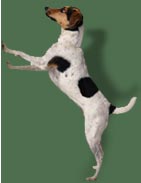 |
|
|
Cats require a diet varied in proteins, carbs, fats, minerals, vitamins and plenty of water. How much they need will depend upon their age and activity levels. Aim for a balance and feed in proper amounts. Don't panic if your cat rejects his favorite meal. Cats are notoriously finicky eaters. Instead, offer something new. Cats crave variety. If that doesn't work, don't worry. Cats go through cycles of body weight, causing them to adjust their eating patterns. Continue to offer a nutritionally complete and balanced diet. Avoid
excessive treats and table scraps. If your cat persists in not eating
and begins to lose excessive amounts of weight, see your veterinarian. Whatever type you select make sure that is has 100% nutritional
value. Name brands and premium foods offer a better balance and
will produce a smaller, firmer stool in your cat. • Milk-can cause diarrhea in some pets Treats are a great way to reward your cat for good behavior. Most are high in calories and should be given in moderation. Most common types:
|
||
 |